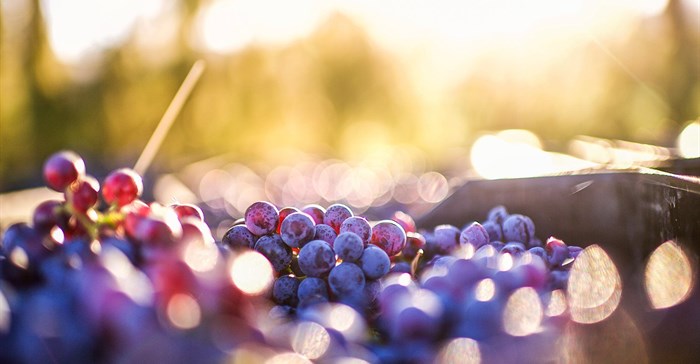Marketing & Media trends
Industry trends
BizTrends Sponsors
Trending
#BizTrends2020: SA wine industry shifting gears

The wine industry annually contributes more than R36bn to South Africa’s gross domestic product and employs 290 000 people throughout the value chain. For every R1m invested in the wine industry, five or more people can be employed.
The industry stands at the midway mark of a ten year strategy towards a stronger, more sustainable sector in 2025. The Wine Industry Strategic Exercise (WISE) identified 10 projects in 2015 that will help the industry be more robust, profitable and globally competitive. These include a more focused export strategy, understanding and leveraging the local market, growing wine tourism, giving transformation efforts new momentum and ultimately also ensuring a better profit margin for wine grape producers at farm level.
Crop smaller, but prices increase
The profitability of wine production has been under pressure for some time due to rising input costs, tough market conditions, policy uncertainty and, recently, unfavourable climatic conditions.
This has led to the area under wine grape production shrinking by 7% over the past five years to 93,021 ha and the number of wine grape producers declining by 34% to 2,873 over the past decade.
Certain wine grape growing areas in the Northern Cape and Klein Karoo are still under tremendous pressure from the ongoing drought, but most areas in the Western Cape are experiencing a good growing season thus far leading up to harvest time from January to March 2020. According to South African Wine Industry Information & Systems (SAWIS), the 2020 wine grape crop is at this early stage expected to be equal to or somewhat larger than in 2019, but still below the five-year average.
Over time, a decline in the availability of wine has sparked a renewed focus on higher-value products and higher price points per litre for both local and export markets. While export volumes for the 12 months ending November 2019 were down 25%, the value per litre increased by 24%. On the local front, the retail price increased by 7%, with volumes 8% lower.
Whilst the structural adjustment on price is positive and long overdue, going forward care should be exercised to strike a balance between value increase and volume loss. This underlines the importance of sustainable South African wine brands and strategic marketing.
However, it is positive that wine grape producers have seen these higher prices filter down to the farm gate to some extent, with net farming income moving towards more sustainable levels in 2019.
New vines planted
Although many producers are still only breaking even or operating at a loss, it is encouraging to see wine grape producers re-establishing vines. What’s even more encouraging is that these vines are top quality plant material free from harmful viruses and there is a larger focus on drought-resistant cultivars to curb the effects of climate change.
Water availability will remain a big challenge, with wine grape producers finding more efficient ways to monitor and manage water resources thanks to ongoing research by the industry body Winetech. Projects such as upgrades of the Brandvlei and Clanwilliam dams will also have a large impact in the respective regions.
Focused exports and wine tourism growth
With exports accounting for half of South Africa’s wine production, the industry is more focused than ever on growing both value and volume in established and new markets, while working on creating a more favourable trade environment.
The industry body responsible for export promotion, Wines of South Africa (WoSA), focuses on maintaining traditional markets, such as the United Kingdom which still accounts for about 20% of South African wine exports, while growing new markets such as the United States, China and Africa.
Although each of these markets have their own set of challenges, the industry is actively working with the government on preferential trade agreements with key markets to ease access and reduce export costs.
South Africa’s wine tourism sector has also seen tremendous growth in the past few years, helping grow the local and global fan base for South African wines. Visitor numbers soared in 2018 and South Africa as a country and specific regions have received global recognition for their wine tourism offerings in 2019. This is expected to gain further momentum in the New Year following the launch of a free online Vinpro Wine Tourism Toolkit and workshops in 2019 to help wine businesses take their offering to the next level.
People at the core
People are the cornerstone of the wine industry, and therefore wine grape producers, cellars and the industry as a whole will continue to invest in the well-being and development of those living and working in the wine industry. Various initiatives at industry and farm level address harm-reduction, socio-economic issues, as well as training and development.
Transformation successes achieved in 2019 are expected to gain further momentum in the New Year as the South African Wine Industry Transformation Unit (SAWITU) continues its support, funding and initiatives aimed at black-owned enterprises, black farmers and entrepreneurs in the wine value-chain.











